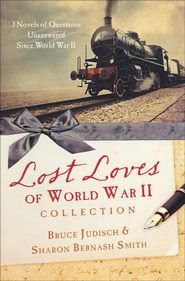(Click cover for more information)
Well, I hadn’t planned on doing this. When I first thought to post book reviews, my intention was to focus on a breadth of authors; share the wealth, so to speak. I didn’t intend to review a single author more than once.
Butchya know? Sometimes ya just hafta changeyer plans.
I reviewed Everybody Loved Roger Harden, by Cecil Murphey, earlier this month. Everybody Wanted Room 623 is the second in his cozy mystery series. It is an absolute gem. As with Roger Harden, Jeannie and I read it aloud in the evenings before bedtime. We barely made it through the first chapter, with all the giggling fits it prompted. I’m sorry…did I say giggling? Jeannie giggled; I chuckled. Guys don’t giggle.
But I digress. (Guys do digress.)
Our heroes from Roger Harden—Julie West and James Burton—return in another murder mystery. This one takes place at the quaint Cartledge Inn, situated in the beautiful countryside near Stone Mountain, Georgia. A mutual acquaintance of theirs is found shot in his room (which, incidentally, is a particularly painful place to get shot)—Room 623, of course. Police detective Oliver Viktor (coincidentally, a former college pal of Burton’s) is on the scene conducting the investigation. The three pool their skills and resources into sorting out just what must have happened in Room 623. Several characters related in various ways to the victim drop in and out, adding their pieces to the puzzle of who committed the murder, and why. Of course, Mr. Murphey does another great job of concealing the murderer’s identity until the last minute.
So, why all the giggling—and chuckling? A couple of reasons:
First, Mr. Murphey assigns his characters (save Julie and Burton) names of real-life authors, agents or publishers. For example, the murder victim is one Stefan Lauber (a name those in the Christian writing industry will recognize as a take-off on Steve Laube, a well known and highly respected Christian literary agent). In a delightful e-mail exchange I had with the author after my earlier review, he shared, “I love killing off my friends.” Indeed, Mr. Lauber didn’t survive the first sentence of the book. Appearances by characters such as Deedra Knight and Terrance Waylin (Diedre Knight and Terry Whalin – also highly regarded literary agents), added to the fun. But when the Scott Bell-James character walked in, I nearly lost it. It doesn’t stop there, as many more ‘literary’ characters add their color to the story. (Important to note, by the way, is that Mr. Murphey employs his friends’ names, but not their real personalities or other actual attributes. Having had the pleasure of meeting some of them, their characters’ descriptions and roles became that much more precious.)
Second, if you had the pleasure of reading Roger Harden, you’ll get a double treat watching Julie’s and Burton’s personalities, as well as their relationship, develop. Writing a novel in the first-person perspective is a bit risky, and not at all easy. It effectively puts the reader inside the head of the character; therefore, the author must remain focused, consistent and honest with the character’s personality biases, limited frame of reference over the entire plot, and even the nuances of his/her gender. I personally am guilty of setting aside a novel by an accomplished writer who had a promising story line, but just lost me with the handling of the first-person point of view. Mr. Murphey doesn’t just make it work, he uses it to elevate the reader’s experience to a whole new level. His command of the technique is flawless, and seeing events unfold through Julie’s eyes is absolutely priceless. Her acerbic wit, professional slant (she’s a psychologist), feminine intuition—and especially her attraction to Burton—imbue a unique deliciousness into the reading. Mr. Murphey’s practiced pen would still have succeeded at telling the story in the more common third-person narrative style, but I don’t think it would have enhanced the tale to nearly the extent it does by allowing us to view the world through Julie’s eyes, heart and mind.
All things considered, it’s not necessary to read Roger Harden to enjoy Room 623, but your pleasure will be greatly enriched if you do.
Everybody Wanted Room 623 is a must-read for those interested in a true mystery, but who also enjoy multicolored threads of the Gospel and the Christian ethic interwoven skillfully through the fabric of a story—not awkwardly basted over it. And Mr. Murphey never drops a stitch.
Oh, and be prepared to giggle…or chuckle…whatever.
Butchya know? Sometimes ya just hafta changeyer plans.
I reviewed Everybody Loved Roger Harden, by Cecil Murphey, earlier this month. Everybody Wanted Room 623 is the second in his cozy mystery series. It is an absolute gem. As with Roger Harden, Jeannie and I read it aloud in the evenings before bedtime. We barely made it through the first chapter, with all the giggling fits it prompted. I’m sorry…did I say giggling? Jeannie giggled; I chuckled. Guys don’t giggle.
But I digress. (Guys do digress.)
Our heroes from Roger Harden—Julie West and James Burton—return in another murder mystery. This one takes place at the quaint Cartledge Inn, situated in the beautiful countryside near Stone Mountain, Georgia. A mutual acquaintance of theirs is found shot in his room (which, incidentally, is a particularly painful place to get shot)—Room 623, of course. Police detective Oliver Viktor (coincidentally, a former college pal of Burton’s) is on the scene conducting the investigation. The three pool their skills and resources into sorting out just what must have happened in Room 623. Several characters related in various ways to the victim drop in and out, adding their pieces to the puzzle of who committed the murder, and why. Of course, Mr. Murphey does another great job of concealing the murderer’s identity until the last minute.
So, why all the giggling—and chuckling? A couple of reasons:
First, Mr. Murphey assigns his characters (save Julie and Burton) names of real-life authors, agents or publishers. For example, the murder victim is one Stefan Lauber (a name those in the Christian writing industry will recognize as a take-off on Steve Laube, a well known and highly respected Christian literary agent). In a delightful e-mail exchange I had with the author after my earlier review, he shared, “I love killing off my friends.” Indeed, Mr. Lauber didn’t survive the first sentence of the book. Appearances by characters such as Deedra Knight and Terrance Waylin (Diedre Knight and Terry Whalin – also highly regarded literary agents), added to the fun. But when the Scott Bell-James character walked in, I nearly lost it. It doesn’t stop there, as many more ‘literary’ characters add their color to the story. (Important to note, by the way, is that Mr. Murphey employs his friends’ names, but not their real personalities or other actual attributes. Having had the pleasure of meeting some of them, their characters’ descriptions and roles became that much more precious.)
Second, if you had the pleasure of reading Roger Harden, you’ll get a double treat watching Julie’s and Burton’s personalities, as well as their relationship, develop. Writing a novel in the first-person perspective is a bit risky, and not at all easy. It effectively puts the reader inside the head of the character; therefore, the author must remain focused, consistent and honest with the character’s personality biases, limited frame of reference over the entire plot, and even the nuances of his/her gender. I personally am guilty of setting aside a novel by an accomplished writer who had a promising story line, but just lost me with the handling of the first-person point of view. Mr. Murphey doesn’t just make it work, he uses it to elevate the reader’s experience to a whole new level. His command of the technique is flawless, and seeing events unfold through Julie’s eyes is absolutely priceless. Her acerbic wit, professional slant (she’s a psychologist), feminine intuition—and especially her attraction to Burton—imbue a unique deliciousness into the reading. Mr. Murphey’s practiced pen would still have succeeded at telling the story in the more common third-person narrative style, but I don’t think it would have enhanced the tale to nearly the extent it does by allowing us to view the world through Julie’s eyes, heart and mind.
All things considered, it’s not necessary to read Roger Harden to enjoy Room 623, but your pleasure will be greatly enriched if you do.
Everybody Wanted Room 623 is a must-read for those interested in a true mystery, but who also enjoy multicolored threads of the Gospel and the Christian ethic interwoven skillfully through the fabric of a story—not awkwardly basted over it. And Mr. Murphey never drops a stitch.
Oh, and be prepared to giggle…or chuckle…whatever.













